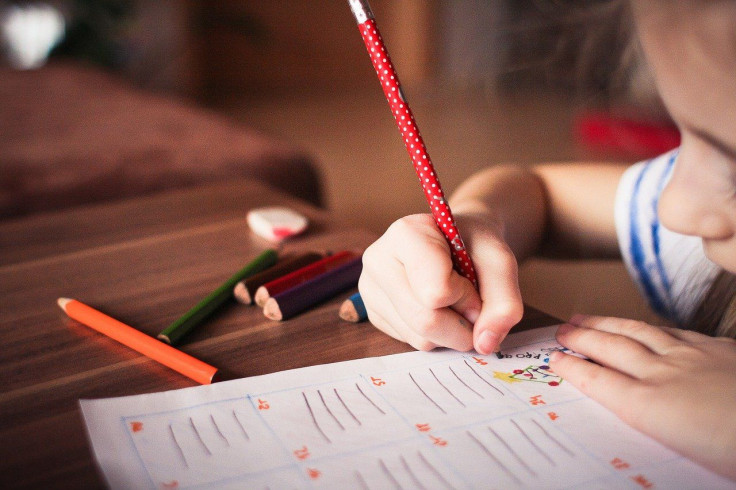Hidden Disabilities: Dyslexia And Other Common Learning Disabilities You Need To Know
KEY POINTS
- Many people are living with learning disabilities that make education difficult for them
- People with average or above-average intellect are often found to have learning disabilities, Mayo Clinic said
- Learning disabilities are often considered "hidden disabilities" as some may not even know they have one
Many people in the U.S. live with a learning disorder, but only a few actually understand what it really is and how to deal with it. This article will discuss some common learning disorders and how they can affect people's lives.
In the U.S., the National Center for Education Statistics (NCES) data show that about 7.1 million students aged three to 21 received special education services from 2018 to 2019. Among them, 33% had specific learning disabilities, which is higher than any other type of disability, the NCES noted.
Learning disorders are processing issues that prevent an individual from learning skills such as reading, math or writing. They are different from learning problems that stem from handicaps, emotional and environmental issues or intellectual disabilities, the Learning Disability Association of America (LDA) said.
According to the Mayo Clinic, people of average or above-average intelligence are often found to having it. This is why there may seem to be a "gap" in the person's potential and performance. As the LDA noted, learning disabilities are often referred to as "hidden disabilities," and they can also affect other factors in an individual's life beyond education.
Unfortunately, some people who have learning disorders don't even know that they have it and may keep wondering why they are having problems with academics, work or even their relationships.
Here are some common learning disabilities and how they affect the people who have them:
Dyslexia
Perhaps many people have heard of dyslexia, a learning problem that affects a person's reading and other language-based processing skills. Simply put, dyslexia can cause problems with word recognition, spelling and decoding, LDA noted.
Someone with dyslexia may find it difficult to follow the texts on a page when reading. Others can see words as individual letters but cannot put them in the right order, Barnsley College said. They may also find it difficult to pronounce longer words or listen and write at the same time.
A person with dyslexia may also have difficulties producing written outputs because of problems with writing longer words and confusion over left and right side orientation.
Apart from common issues with education, someone with dyslexia may also find it hard to organize and manage their time.
"You have difficulty judging how long things take as well as difficulty remembering dates and appointments," Barnsley College noted.
Dyscalcula
In dyscalcula, the difficulty is with a person's math ability and understanding of how numbers may relate to each other. Someone with dyscalcula may find it difficult to use math symbols or quantify without counting, the Mayo clinic said. As such, they may have problems in calculating math problems and understanding word problems.
Because dyscalcula causes difficulties in learning basic math, it may also be difficult for someone with the condition to learn higher-level math. Everyday math may also be rather problematic.
Dysgraphia
Dysgraphia is a learning disability that affects a person's ability to produce written works. Writing requires a combination of fine motor skills and the brain's processing ability. Unfortunately, dysgraphia interferes with a person's capability to store and automatically retrieve letters and numerals, the LDA explained.
While someone with dysgraphia can write, it takes more effort and concentration from their end to produce a written work, Barnsley College explained. This may also interfere with their math ability because they may also have problems with writing numerals.
Someone with dysgraphia may appear to have messy handwriting, but it's really because the actual process of writing is more difficult for them.
Dyspraxia
Dyspraxia is a common disorder that affects movement and coordination. It is characterized by muscle control difficulties and issues with coordination, the LDA said.
Although technically not considered a learning disability in the U.S., it is often associated with learning disabilities because it can also affect learning.
"Dyspraxia often exists along with Dyslexia, Dyscalculia or ADHD," the LDA said.
Someone with dyspraxia may appear clumsy. They tend to have poor hand-eye coordination and may also have difficulties in organizing their belongings. Fine motor skills such as cutting accurately may be difficult for someone with dyspraxia, and they may also find loud or constant noises such as the ticking of a clock to be quite annoying.
Non-Verbal Learning Disabilities
People with non-verbal learning disabilities have no issues with their vocabulary, reading and language skills. The problem, Mayo Clinic explained, is with their visual-motor, visual-spatial and social abilities. This includes problems with interpreting facial expressions and non-verbal cues, attention, organizing and using appropriate language for school.
Although still not listed as a type of learning disability, the LDA noted growing evidence that some 5% of people with learning disabilities also display problems linked to non-verbal learning disabilities.
Dealing With Learning Disabilities
According to the Mayo Clinic, learning disorders may stem from various factors, including family history, psychological or physical trauma, environmental exposure to toxins such as lead, or prenatal risks. It is important to catch learning disorders early on as they can trigger anxiety, low self-esteem and depression in children who have them.
So far, several options can help children with learning disabilities, from an individualized education program and classroom arrangements to medications and therapy. It is also important to support the interests of children with learning disorders to help them gain confidence.
"A learning disability cannot be cured or fixed; it is a lifelong challenge," the LDA said. "However, with appropriate support and intervention, people with learning disabilities can achieve success in school, at work, in relationships, and the community."

© Copyright IBTimes 2025. All rights reserved.






















